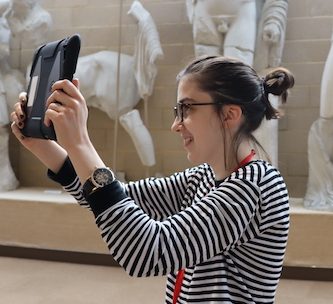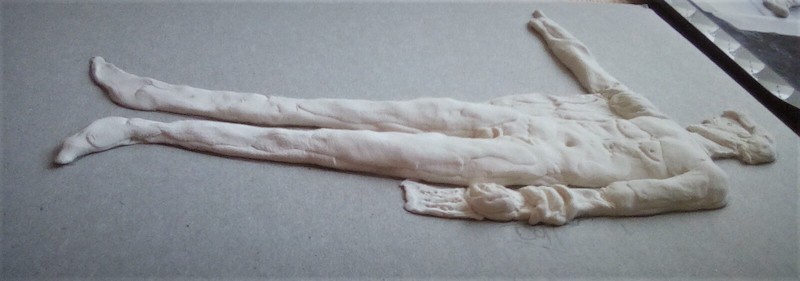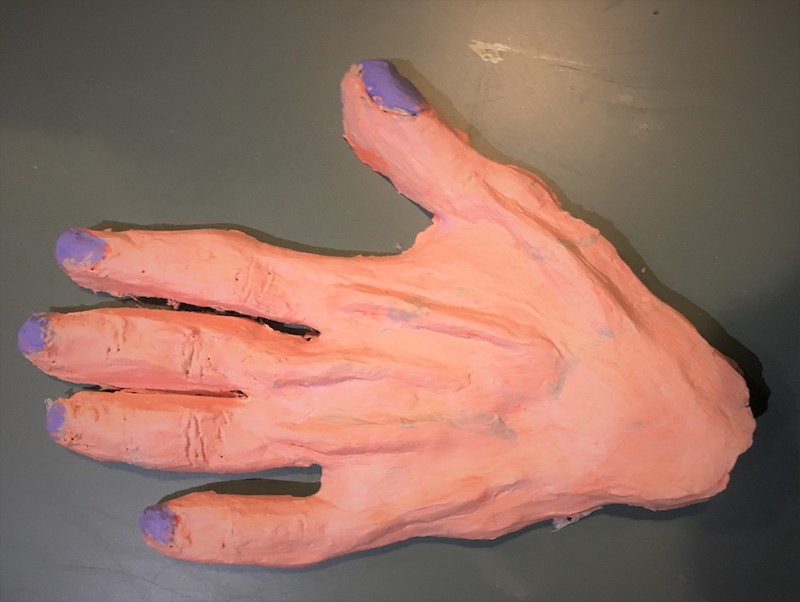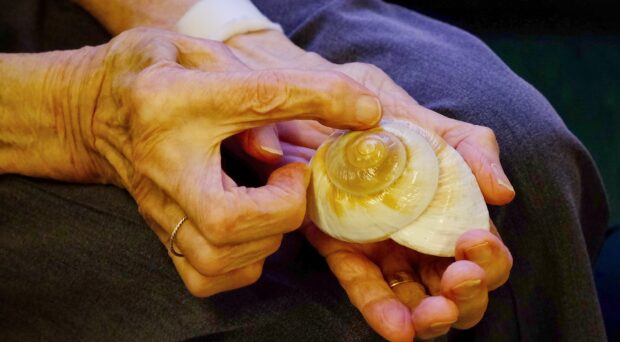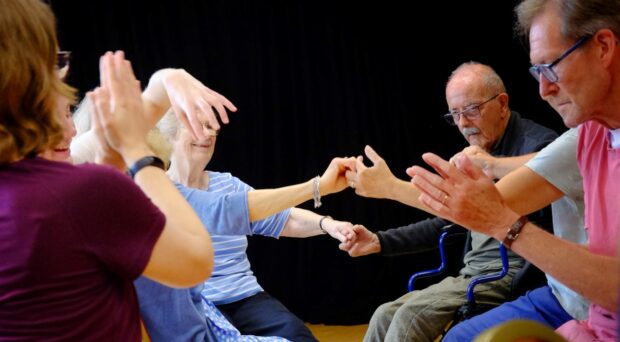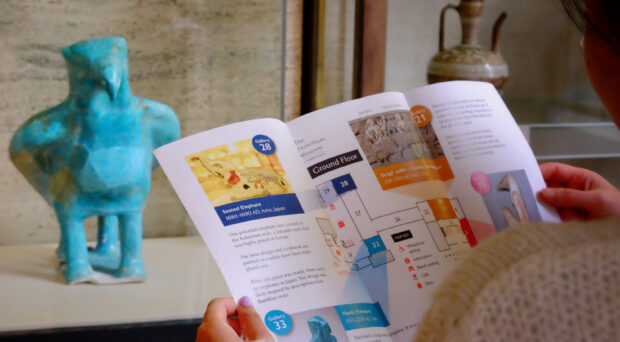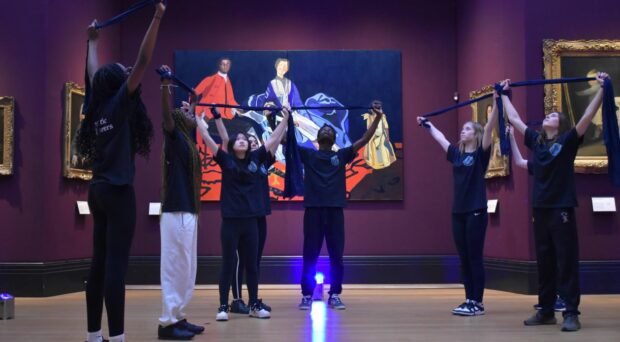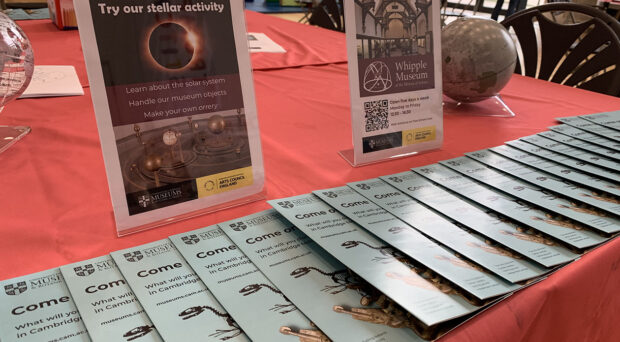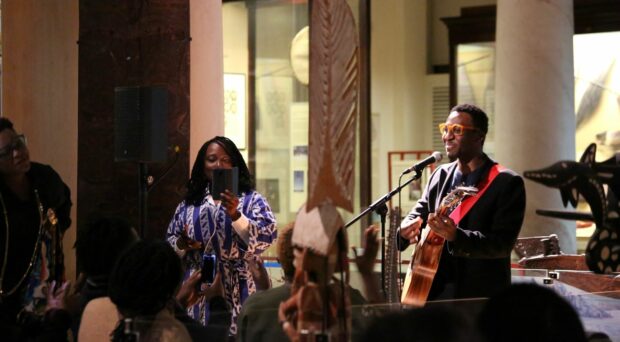With their doors closed, staff at home and social distancing the new norm, how can and how are Museums continuing to play an active and relevant role in people’s lives?
Justyna Ladosz shares her experience of developing and delivering a remote session designed to engage the University of Cambridge Museums‘ (UCM) Portals to the World participants; people with a dementia diagnosis or cognitive impairment and their care partners. Justyna is the Museum of Classical Archaeology’s Education lead.
In its tenth year, Portals is a partnership programme delivered with Dementia Compass and combines regular courses with an alumni programme. The regularity promotes familiarity, confidence, and trust in the Museums. Each session comprises of a talk, gallery exploration and a creative or object handling activity. Portals emphasises ability over disability and provides opportunities for people to learn, share and create and to experience ‘respite together’.
What were the challenges you faced in moving Portals to your house?
My biggest worry was my unstable internet connection. You never want to cut out during a session, but this is even more important during a Portals session.
The Museum of Classical Archaeology collection poses unique challenges for a video format. I wanted to talk about statues, but how could I communicate their size using photographs? I wondered how I could translate objects that are meant to be seen from all round into flat pictures? Finally, our biggest problem (which I creatively dubbed “the beige problem”) was that the statues are made of plaster, therefore in shades of white and grey. They are surrounded by walls of yellow brick, and a beige carpet. This is not very visually engaging. Solution: I learned how to re-colour photographs and their elements to draw attention to what I was talking about.
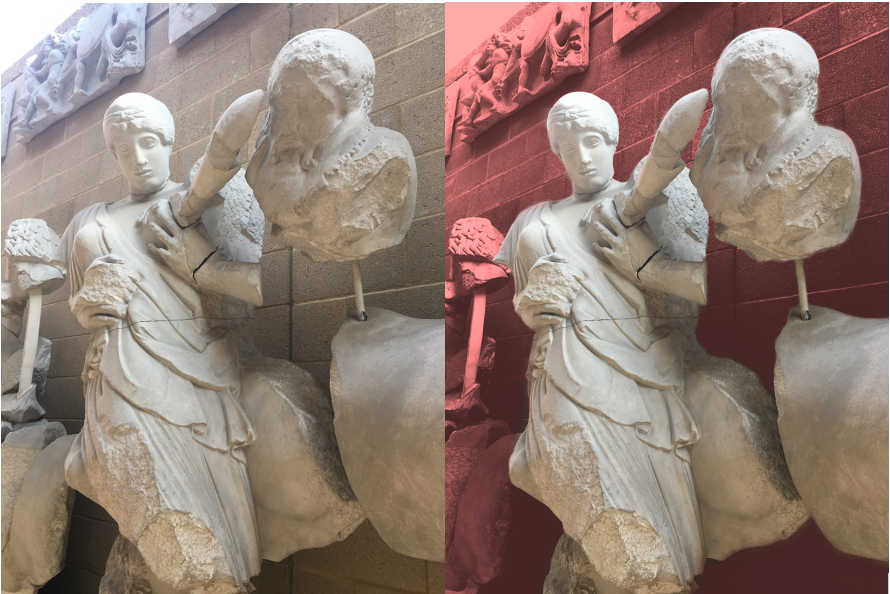
How did you plan for the session content?
It all started with a Museum Remix video about a statue of a woman elbowing a centaur in the face from the west pediment of the temple of Zeus in Olympia.
During our first discussions with Ruth Clarke (Inclusion Associate at the Fitzwilliam Museum and Portals programme manager) about me possibly delivering a session, she suggested the topic of women as a suitable and an exciting one for the programme.
I then brainstormed, thinking about how I could extend the 4-minute Remix video into a longer talk for Portals. To be honest, talking about the statue more was not the problem. Containing all of my ideas into one session was the issue. Edye Hoffmann from Dementia Compass was vital in helping me narrow down my ideas and choosing one narrative for our audience.
We planned to use the Bassae Frieze, which depicts a centauromachy and an Amazonomachy (the fight between humans and centaurs and men and amazons respectively). This frieze was perfect to introduce the group to the idea of ancient warriors and get them thinking about the key question: “What do warrior women in Ancient Greek art look like and what can we understand through the way they are depicted?”. This would then lead us ideally to talk about the Woman on the Olympia pediment. We decided to break for questions after 20 minutes, and after a short break, we resumed to talk about the Woman and the Centaur.
The art activity is a vital part of the Portals programme. Thankfully I didn’t have to do it myself. Nathan Huxtable, Education Assistant and programme artist, and Ruth were great to chat with about what it might be, and Nathan took the lead on designing an activity based on making Centaur faces and human hands from soft modelling clay.
After all the planning … how did it go?
I was really nervous and worried that my tendency to go off topic, or blurt out information as fast as possible would take over.
I worried unnecessarily. Edye and Ruth chaired the session, and both were great at welcoming people and putting everybody at ease. Edye was great at asking me questions at the right time during the talk. They were really meant for me to remember to say the thing that I was supposed to say, and I appreciated that immensely.
There were jokes and hellos from the start, and the participants themselves were incredibly welcoming. I have met some before, as over the previous year I attended two Portals sessions to familiarise myself with the format. This helped me to feel at ease, as well as helping the participants as my face was not completely unfamiliar.
The topic itself was obviously the big attraction of the session. Who doesn’t like to talk about women in ancient sculpture? To be honest presenting to the group was incredibly intimidating. There was so much knowledge and experience in that virtual room. This clearly bore out in the type of questions I was hearing from them during the questions section.
Have you had any feedback?
The immediate feedback in a live session is the best part of the Portals programme. I could see that the participants enjoyed the session, and for my own part, I loved delivering it.
Nathan’s art activity, which the session ended with, was a highlight for everyone. We have received so many pictures of the art made by the participants. It really speaks for itself.
People mentioned how the sessions helped their wellbeing, and how it helped them to look at women in Greek Art differently. Isn’t that all I could ask for?
What has this challenge meant to you?
Fundamentally I like working in education because I like sharing with people the things I know. During lockdown I haven’t had many opportunities to do that, even though I did manage to deliver a few virtual school sessions. It’s been great to be able to share what I’m passionate about with others, namely women elbowing centaurs in the face!
On a more serious level, this programme is incredibly important. I was so grateful to be able to take part in and deliver a session that brightened up the day for this group of people.
What have you been doing since?
I’m working on reaching other audiences during the lockdown. I’m back to focusing on schools and children and trying to ease the burden teachers and parents are feeling right now. I’m also hoping to deliver more Portals sessions in the future!

